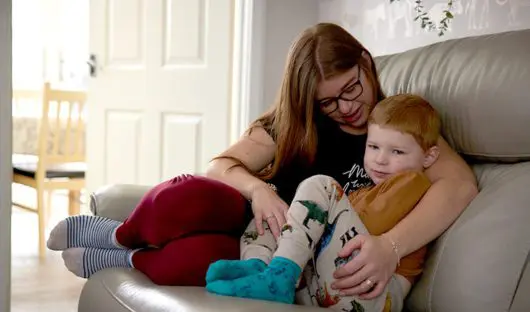Our impact on the environment
The environment – a global concern
Mitigating, reducing and repairing the damage done to the environment has become an increasingly urgent concern for countries, organisations and people across the globe. The effects of this damage are broad; we know that:
- More and more people are becoming unwell due to air pollution
- Micro plastics often contaminate everyday foods
- Biodiversity decline threatens food production
- In the past six years, temperatures have been the warmest on record
Our role in protecting the environment
At Young Lives vs Cancer, we play a key part in the future of children and young people with cancer, and so we believe we have a responsibility to measure, control and reduce our impact on the environment, working alongside others towards a more sustainable future.
We already report on our direct carbon usage through two statutory schemes: the Single Environmental and Carbon Reporting Framework (SECR), which we have published in our annual report and accounts since 2019, and we have a carbon audit every few years through the Energy Savings Opportunity Scheme (ESOS). While these frameworks are a good start, they only consider a fraction of our overall impact and don’t go beyond carbon dioxide emissions.
Changes we aim to make
Over time, we’ll go beyond statutory carbon reporting and we’ll:
Measure, control and reduce our impacts in the following areas:
- Carbon dioxide (or equivalent greenhouse gas) emissions
- Water usage and pollution
- Resource efficiency and waste reduction
- Biodiversity (our impact on nature)
2. Accurately reflect the emissions that are created because of our organisation’s activities. We haven’t got the processes in place to report against everything right now, but we’ll keep on improving every year until we get there.
3. Aim to reach Net Zero ahead of any statutory targets, but we’re not ready to announce a target date yet. Net Zero is the name of the UK Government’s plan for the UK to remove more carbon dioxide from the atmosphere than we put in by 2050. Net Zero is a relatively new concept; more work is needed to fully understand what is included, how it’s measured and how that will look for an organisation like ours. Answers to these questions are coming; they’re being worked through by academics, scientists and organisation much larger than ours who can commit significant resource to the issue. As guidance and tools become available, we’ll look to adopt them and make an informed decision on setting a Net Zero target date.
Environmentally responsible now, Net Zero in the future
This uncertainty won’t stop us progressing. We’ll:
- Start addressing the emissions that are directly in our control and add environmental criteria to our decision-making processes
- Look for solutions to make it easier for us to track those emissions over which we have less control
- Try to make good sustainable purchasing decisions
- Consider approaches to mitigating those emissions we can’t avoid
- Increase our environmental reporting beyond the statutory minimum to give a true and honest reflection of our impact on the environment
We don’t yet know how we’re going to meet some of these ambitions, what challenges we’ll face or how long it will take us to get there. However, we do know that the time for action is now. It’s better to get started than to wait for a perfect solution.

